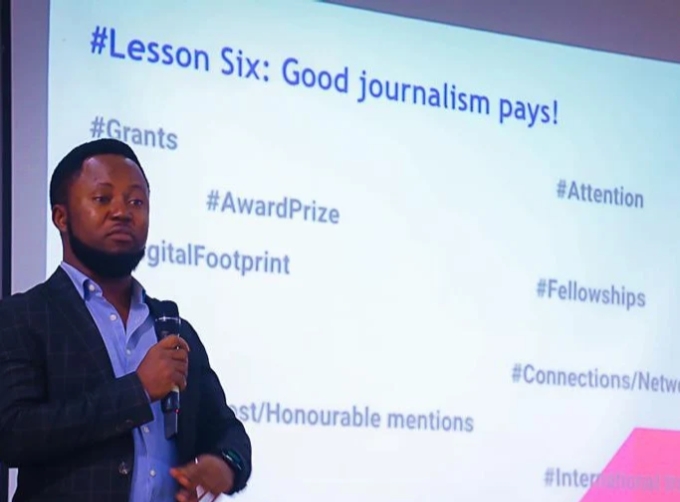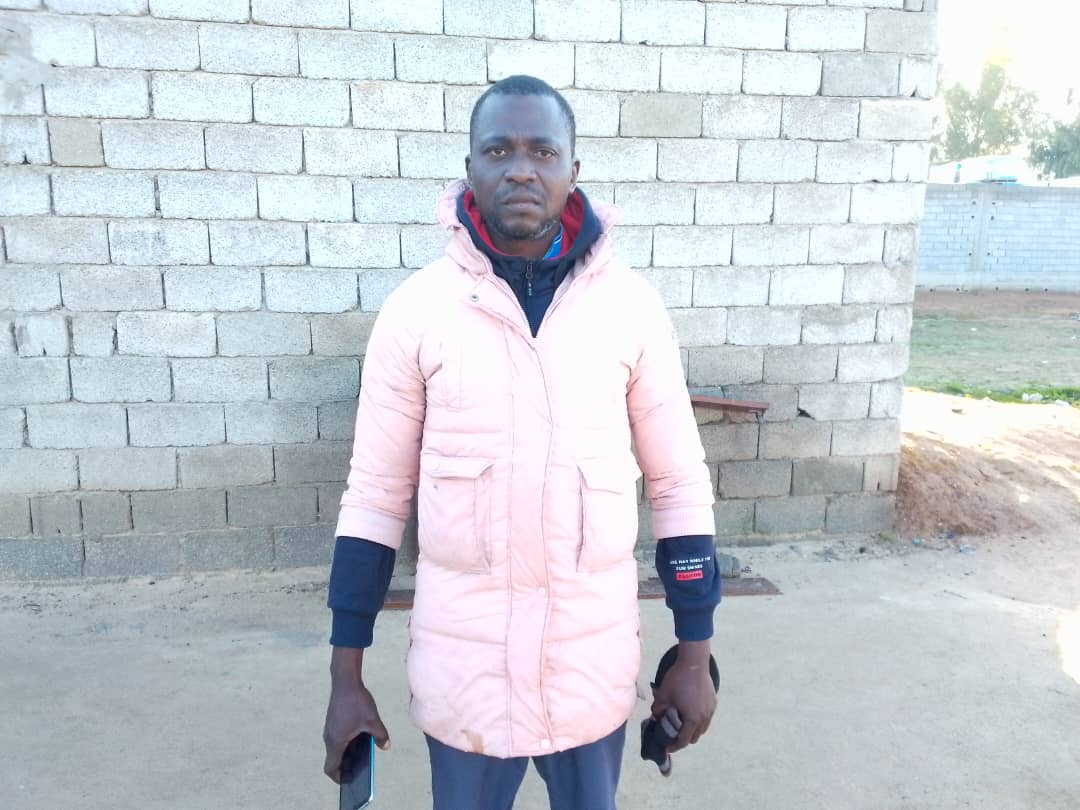I used to wonder what it would feel like when one finds oneself in an assemblage of troublemakers, this time around a global convening of dare-devil troublemakers. Tough faces, rugged looks, scars, lamentations, boredom, and fiery speeches from speakers, like Girolamo Savonarola, the fiery Italian preacher. That was what I expected when I landed in Gothenburg, Sweden, for the 13th Global Investigative Journalism Conference (GIJC), which was held in September.
But I was quite taken aback to see some pretty faces, always smiling and wanting to know you beyond journalism. As though I missed the venue, no, I was in the right place. Are these really investigative journalists who put their lives on the line to hold the powerful to account? Really? You guys can laugh and also hit the dance floor? One of the world’s most endangered species, as history has proven. You’d mistake these people for bankers, investors, or any kind of profession handling large sums. I didn’t get the memo on time, I must confess.
The fact that I’m also an investigative journalist and a certified troublemaker from Sub-Saharan Africa is not even the point at this moment. Not finding such a coven frightening is entirely unexpected, despite the talk from the first day about the widespread surveillance of journalists.
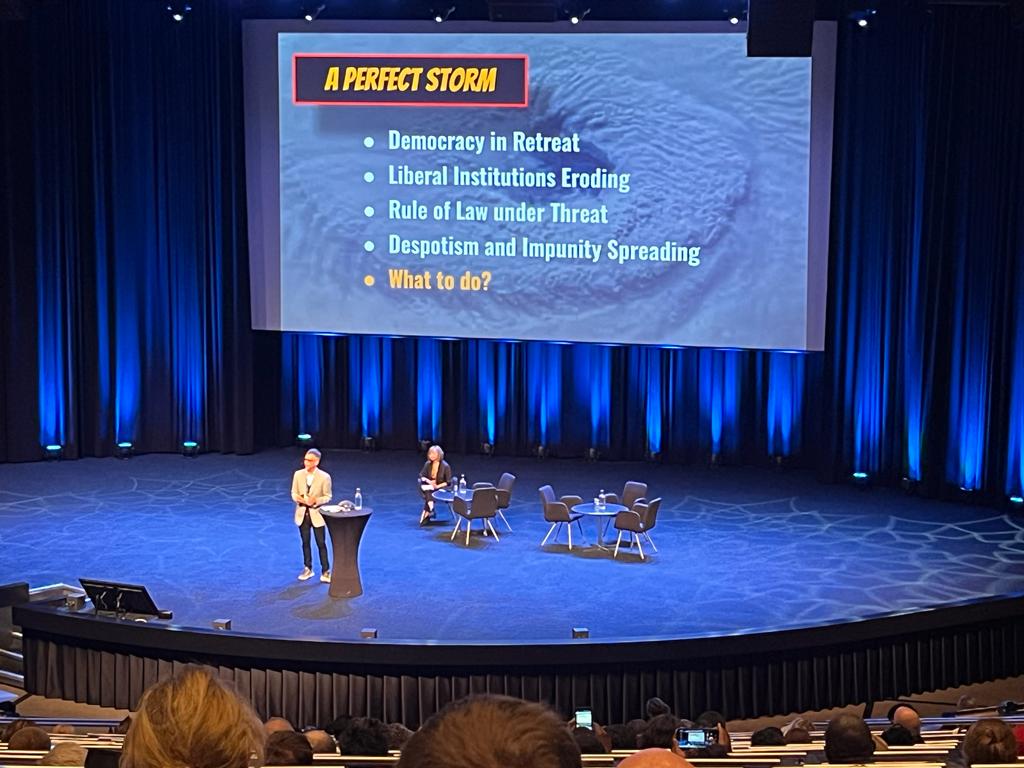
I come from a region where doing journalism can make you disappear without traces. Public officials here don’t want you to unearth the massive kleptocracy and inefficiency in the system. Good governance means something else to them. But here I am in Gothenburg, hoping to hear some very scary stories. Yes. I did. The tales of corruption, misgovernance, and human rights abuses are not just a Nigerian thing after all. It’s global.
Advertisement
But I’ve got some shock absorbers, by the way. Beyond the fun, sessions, food and sightseeing of the 13th GIJC, there were some lessons I took home from the world’s largest international gathering of investigative journalists.

On December 20, I had the opportunity to share these lessons with my colleagues during the annual in-house training and end-of-year party of my newspaper, TheCable, one of Africa’s most credible and independent platforms.
As an addendum, the lessons are personal. Other participants may share something different. But the experiences may not be far from one another.
Advertisement
LESSON ONE: INVESTIGATIVE JOURNALISM IS BECOMING MORE TECH-DRIVEN
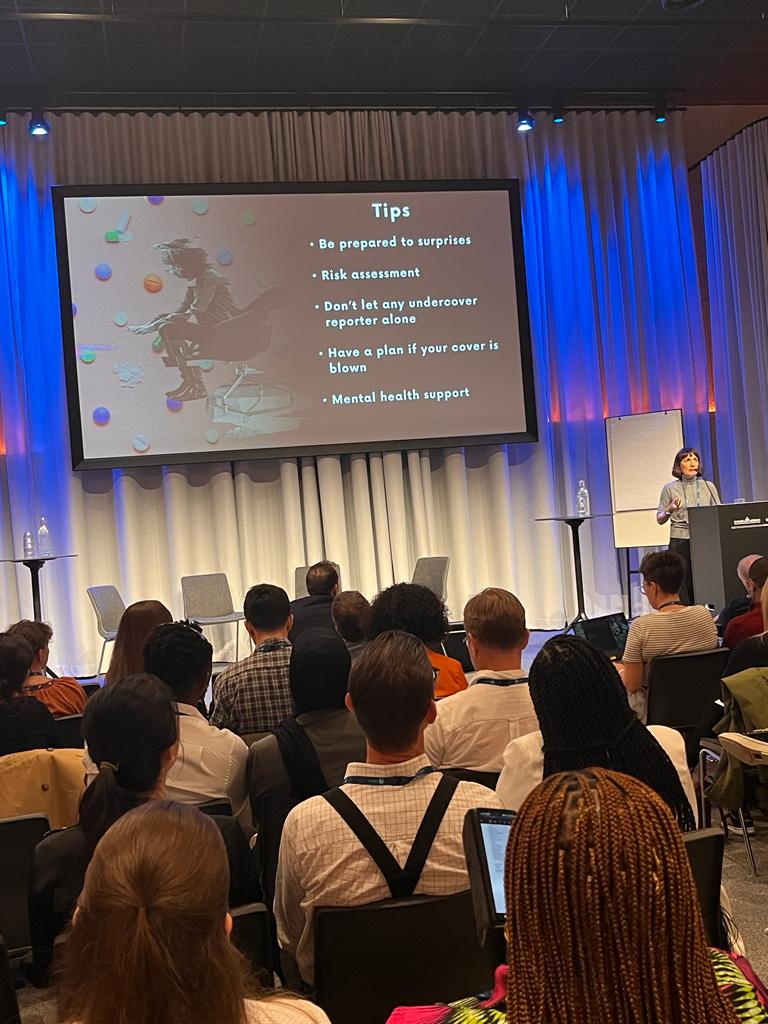
Investigative journalism is becoming more forensic. There are so many things tech will unearth in the course of a story. Sometimes, you don’t need to go to the field. From your desk, you can crawl all the information—texts, images, phone interviews, maps, data mining, and speaking to more sources. There are so many open-source tools that you can leverage. Not travelling doesn’t make your story less of an investigation. You just have to think outside the box to present evidence.
LESSON TWO: KNOW THE TOOLS
Just like an artisan may not be effective without his tools, an investigative journalist also needs to know and understand the tools needed to unearth what is hidden. The tools make your work solid, innovative and foolproof.
Advertisement
From GoogleEarth to GoogleStreetView, TrueCaller, WaybackMachine, GoogleLens and equipment like hidden cameras for undercover stories, the tools are readily available on the internet, and most of them are easy to use.
LESSON THREE: THE GOLDMINES
In the course of the sessions, especially the one on digging deep into government contracts and tracking corruption, I realised that public websites hold a lot of information and documents that some journalists have not explored. These websites are treasure troves for exclusive documents and data about government activities. On the other hand, other gold mines for sourcing great investigative stories can also be explored to get information that the general public seems to overlook.
Dig deep into the websites of state governments, public agencies, NGOs, academic journals, YouTube videos, and social media.
Advertisement
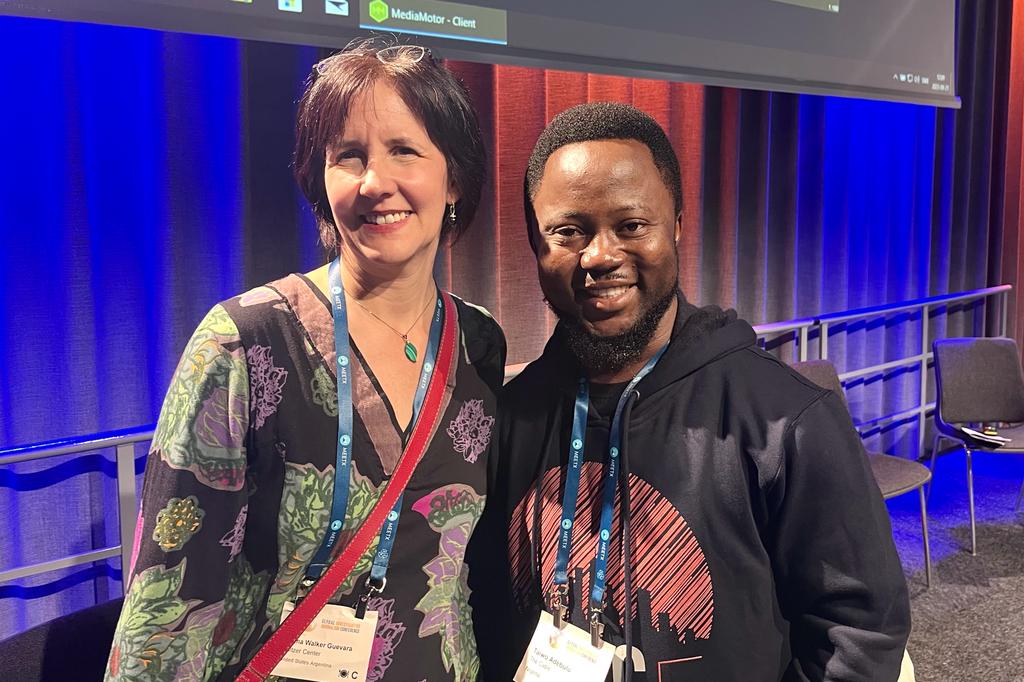
LESSON FOUR: ENVIRONMENTAL JOURNALISM IS THE NEW NORMAL
At the moment, the world cares so much about the environment and its protection. Hence, the majority of resources in journalism are being diverted to the environment. This includes health, the ocean, water, environmental crimes, forests, animal life, and natural resource theft. So many environmental investigative stories were highlighted during the GIJC panels. The one that particularly held me spellbound was the cross-border investigation into the criminal networks that run the Amazon rainforest.
Advertisement
LESSON FIVE: FOLLOW THE MAIN CHARACTER(S)
We often say literature is the mirror of society. In telling a compelling story, focus on the main character (s) and use them to mirror the whole subject matter. Examples are the Lagos Slave Factory series, the Boko Haram deradicalisation story, Baba Aisha fake medicine investigation, and the kidnapped schoolgirls in Kebbi.
Advertisement
Journalism has evolved. It’s the era of innovative storytelling. Use maps, infographics, and motion pictures. Your photographic skills must be top-notch Your audience is beyond Nigeria. Make them understand you without having to Google or do extensive research while reading your story.
Explain concepts, convert exchange rates, and be descriptive.
Advertisement
Read award-winning stories and identify what makes them stand out.
LESSON SIX: GOOD JOURNALISM PAYS!
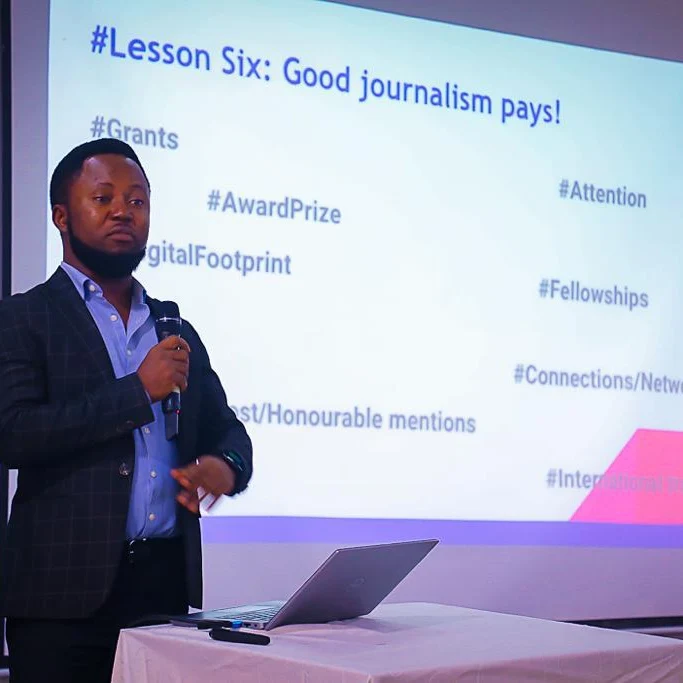
One thing that reverberated across the rooms of the GIJC conference venue was that good journalism pays. With good journalism, you can get cool grants which come in thousands of dollars. I am a multiple grantee of the Pulitzer Center and I can attest to this.
Also, the cash prize that comes from winning beautiful journalism awards, fellowships, quality digital footprints, connections, honourable mentions and international travels are the perks when you take your journalism beyond the mundane.
I need to also make an open declaration that I’m a firm believer that when a reporter does good journalism, they deserve all the goodies in the world.
Adebulu, the features and investigations editor at TheCable, writes from Lagos. You can reach him via X.
Add a comment

